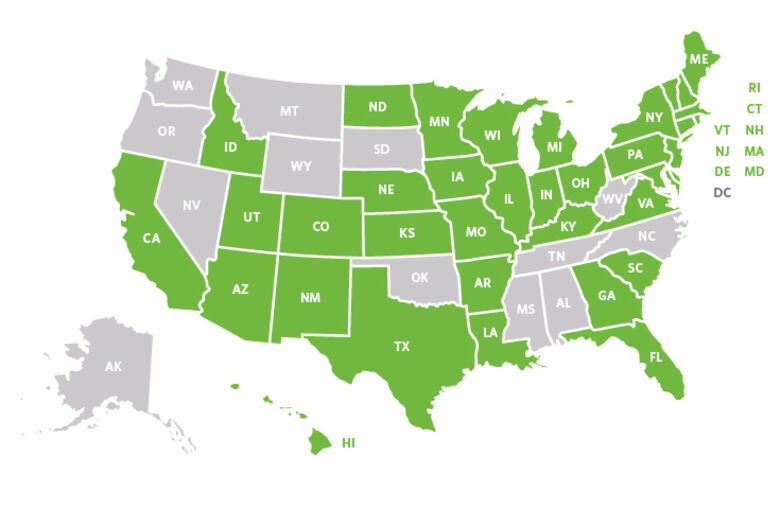Research and Development (R&D) Tax Credits are an incentive for businesses investing in innovation. While the federal R&D tax credit is well-known, more than 35 states in the U.S. also offer R&D Tax Credits to businesses. Some states mirror elements of federal R&D tax credits, while others include different nuances, such as application deadlines, calculation methodologies and credit utilization intricacies.
In addition to significant financial incentives for taxpayers, R&D Tax Credits can help businesses stay competitive by encouraging technological advancements and increased productivity. Ultimately, R&D Tax Credits can help businesses reduce their tax liability and increase profitability while contributing to overall economic growth.
This guide will explore some of the available state R&D Tax Credits, in which our professionals are seeing high activity, and provide details on how eligible businesses can take advantage of them.
Do States Offer Research and Development Tax Credits?
Yes, there are currently more than 35 states that offer a state level tax credit for R&D expenses. Most states’ tax credit programs operate similarly to the federal R&D tax credit, but some use different eligibility requirements, carryforward provisions and refund options.

Can You Claim Both Federal and State R&D Credits?
Taxpayers can claim state and federal R&D tax credits if they meet the requirements for both. Talk to a tax professional to ensure your expenses are applicable for each of these programs.
Top Available State R&D Credits
Here are some of the state R&D tax credit programs available to businesses in the U.S.:
Virginia R&D Tax Credit
Virginia offers an R&D Tax Credit to businesses that qualify, and businesses may be entitled to a tax refund. Recent legislation has increased the R&D Tax Credit pool, effective for tax years beginning on or after January 1, 2023. The annual aggregate amount of R&D Tax Credit available is now $15.77 million, which is up from $7.77 million, while the annual aggregate amount of major R&D credit available is reduced to $16 million, which is down from $24 million. The deadline for Virginia R&D credit applications was September 1, 2024.
Georgia R&D Tax Credit
Georgia offers an R&D Tax Credit that can be immediately monetized to offset payroll tax liabilities. This tax credit is available to businesses that have qualifying research expenses in Georgia. The amount of the credit is equal to 10% of the excess of the current year's qualified research expenses over the base amount.
Texas R&D Tax Credit
Texas offers an R&D Tax Credit that can be used to offset sales and use tax or franchise tax. The credit is based on qualified research expenses incurred in Texas. Businesses can claim a tax credit equal to 2.5% of the qualified research expenses that exceed the base amount.
Maryland R&D Tax Credit
Maryland offers an R&D Tax Credit that can be applied for by businesses that have qualified research expenses in Maryland. The application deadline for the Maryland R&D Tax Credit is November 1 of the year following the tax year in which the expenses were incurred.
California R&D Tax Credit
California offers an R&D Tax Credit that can be calculated using either the Regular Credit methodology or the Alternative Incremental Credit. The credit can be carried forward indefinitely until fully exhausted.
Michigan R&D Tax Credit
Michigan now offers an R&D tax credit for tax years starting on or after January 1, 2025. This R&D tax credit covers basic research, applied research and experimental development. The program has a $100 million annual cap and taxpayers must submit a claim on or before April 1, 2026 to claim this credit.
Your Guide Forward
State R&D Tax Credits can provide significant benefits for businesses investing in innovation. However, each state has specific requirements and deadlines for claiming these credits. As there are variations and changes in regulations across individual states, it is crucial to keep track of legislative updates in each state and comprehend the distinct processes involved in calculating or claiming the credit of each one.
If you think your business may qualify for state R&D credits, it's important to work with a tax professional to assist you in taking advantage of all available credits and complying with the necessary regulations.





